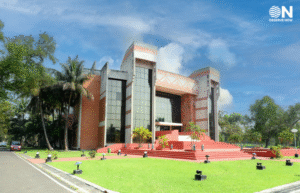Transformation being no longer a luxury but a necessity for businesses to stay competitive and relevant. Companies that fail to adapt risk falling behind. Digital transformation involves integrating digital technologies within an organization to boost productivity, efficiency, and sustainability. This concept gained significant attention during the COVID-19 pandemic and now signifies a broad cultural shift towards more agile and intelligent business practices. Core transformative technologies include artificial intelligence (AI), big data, and the cloud, which have extensive applications across various industries.
In the fast-paced transition of modern business, employing an auto-scaling mechanism is crucial for synchronizing infrastructure with company expansion, enabling effortless scalability and cost-effectiveness. By implementing stringent user and data visibility controls, organizations can ensure security while maintaining detailed oversight. Additionally, the integration of cutting-edge technologies is vital for staying competitive, driving innovation, and boosting operational flexibility. These strategies empower businesses to adeptly manage growth, protect their data, and lead in technological advancements. Siddharth Mala, Correspondent, ObserveNow, interacted with Jithendran C K, Chief Technology Officer, Blubirch, to gather his insights on the matter.
Below are some edited excerpts from the interview:
Can you elaborate on the auto-scaling mechanisms in place to align infrastructure with business growth and ensure consistent performance regardless of business volume?
Growing business is our priority. Infrastructure should scale automatically to support the business accordingly. Being a SAAS platform, the option is not to keep a very high infrastructure at all times as there will be periods where we are experiencing high, medium and rather low traffic as well. Entire infrastructure for production is hosted in AWS and Google Cloud with autoscaling in place. This allows the application servers to be made available in required numbers as per the demand.
Further optimisation is done using Kubernetes where the applications services are containerized in respective pods and the pods are replicated to take care of the peak load traffic. With this mechanism in place, the services will be available consistently on 24/7 basis and the cost is always kept proportional to the revenue. Based on the criticality of services, there are infrastructure we can opt as on-demand, spot and reserved instances can be allocated for high profile services as well.
How does your platform manage user and data visibility control, and what methods of multi-factor authentication and end-to-end data encryption do you employ?
Data is the strength of every organization and user/customer profile is the most important asset that cannot be compromised. Backend users are controlled by IAM user management where the access roles are defined accordingly. This ensures the database access is restricted to the thin list of required users. The data visibility in the platform is controlled by the user roles and every query is managed by the user roles to ensure that only filtered information is provided to the users as per the role.
OKTA is a tool that provides the user and role management for the organisation and enables MFA support. This is extended for the customer implementations as required. We are using AES encryption for the data in transit. Data stored in database is encrypted by default and the database access is always kept through firewall. We have used MFA for all our logins and without multiple challenges no users are given access to our platform. We have implemented single sign-on with our client and partner platforms with MFA so that the security is not compromised even by chance.
Can you describe the recent technologies utilized in your platform and how they enhance its functionality and performance? What is your process for evaluating and integrating new technologies to stay ahead of advancements?
Infrastructure is based on Cloud technologies such as AWS and GCP. These cloud platforms provides high availability and scalability ensuring high performing products for the customers. OKTA is used for user and role management including authentication, that provides the distribution of data with segregation as required. KAFKA is used for que management to ensure guaranteed deliveries using asynchronous process. 24×7 is used for cloud and application monitoring. AWS WAF is used for security firewall for the infrastructure. There are multiple AI platforms from AWS and Google for hosting and implementing AI models. Flutter is the hybrid technology used for mobile development to enable triple platform support for Android, IOS and Windows as required.
We adopt technical evaluation of products to ensure proper decision is being taken in case of build vs. buy so that we can concentrate on our business instead of building all the supporting functions inhouse. Overall solution design is divided into key features, supporting features, integration, security and data distribution. Key features for the product will be developed in house. Any customisation required will be provided in the transformation layer that can be customised by our customers for integration according to their need. New technologies are evaluated by POCs and will be tested with the key products for integration in defined sprints. This makes the go no go decision faster and that saves effort, time and cost. As the product is layered, short sprints will be able to get the results of the POCs faster. The tools and technologies that passes the POCs will be adopted as part of the technical solution provided to the business users.
What built-in failover mechanisms are implemented to ensure uninterrupted availability, and how do you test these mechanisms to ensure reliability during actual failure scenarios?
It is very important for our organization to ensure Business continuity for the users and customers. We always talk about DR and BCP. However it is really required to take care fail over mechanism that manages even a API transaction failure. Identification of the interface that has caused a failure, notification to the appropriate teams for every failure, feature for retriggering the transactions are important parts of the failure management process. All the products are enabled with our native Error management console which is the observability platform that takes care of every transaction that can be a potential failure and provides intelligent resolutions and enables manual resolution as configured.
For DR and BCP, provision provided by cloud providers are utilized such as multiple region backups, automatic switch over in case of DR and BCP is as good as backup power in case of a power shutdown. However all automated DR – BCP are costly affair so they are only provided to the elite customers who has opted for these services. There are mock runs conducted on a frequency of 15 days to test the effectiveness of the BCP and DR processes.
What do you consider the main competitive advantages of your platform, and how do you plan to maintain and enhance these advantages in the future?
Our platform is the largest Return automation platform that caters to several B2B customers. This is ecosystem for the OEMs and Resellers for returns. The technologies used ensure highest availability 99% and scalability up to 8 times in a matter of seconds that caters B2B customers during their high traffic promotional days. The platform is highly user friendly and user driven where 99% off incident management can be addressed by regular support team of the customer support teams.
We are constantly working on distributed systems architecture to isolate the services and this makes every service used in our products scalable independently. Our proprietary observability platform ensures that all the incidents or even errors are logged in and communicated to the teams for faster resolution to make the customer experience outstanding.
In a nut shell, our uniqueness include the one of its kind business platform, highest availability, high performance, easy to use and self-healing enables highest customer satisfaction for our users.
We are in the process of constantly testing our limits on performance, transaction timings, higher percentage of guaranteed deliveries even in the case of asynchronous transactions. We will be looking for light weight components that can be used for integrations, data transformation and creation of plugins that can gel well with our platform to elevate our unique business and technical proposition.







 Following the examination, the NTA addressed concerns raised by some candidates regarding time loss during the test on May 5. These concerns, which led to representations and court cases, were taken into account, and the normalization formula, as per the Supreme Court’s 2018 judgment, was applied to mitigate the impact of the time loss.
Following the examination, the NTA addressed concerns raised by some candidates regarding time loss during the test on May 5. These concerns, which led to representations and court cases, were taken into account, and the normalization formula, as per the Supreme Court’s 2018 judgment, was applied to mitigate the impact of the time loss.















